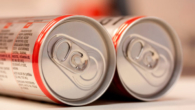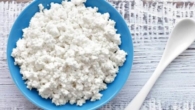
Scientists have found out how caffeine affects the level of “bad” cholesterol
0 < p>Many people like to start their day with a cup of coffee. As scientists note, when consumed in reasonable quantities, this drink can be very useful. A new study by Canadian scientists from McMaster University and a number of other institutions has identified certain proteins that are affected by caffeine. It helps the liver to remove “bad” cholesterol from the bloodstream.
Scientists note in their work: available data indicate that caffeine reduces the risk of cardiovascular diseases. However, the mechanism by which this happens has not yet been revealed. They investigated the effect of caffeine on the expression of two regulators of circulating low-density lipoprotein (LDL) cholesterol, the so-called “bad” cholesterol: the protein PCSK9 and the LDL receptor.
High levels of LDL cholesterol in the blood are associated with increased risk cardiovascular diseases. According to one of the authors of the study, a professor at the Richard Austin University School of Medicine, regular caffeine consumption is associated with a decrease in PCSK9 protein levels in the blood. This increases the liver's ability to remove excess LDL cholesterol from the bloodstream.
Caffeine and its derivatives can also block the activation of another protein, SREBP2. This, in turn, also reduces the level of PCSK9 in the bloodstream, notes the McMaster University website.
“Given that SREBP2 is involved in many cardiometabolic diseases, such as diabetes and fatty liver disease, weakening its function has far-reaching consequences,” adds Austin.









Leave a Reply